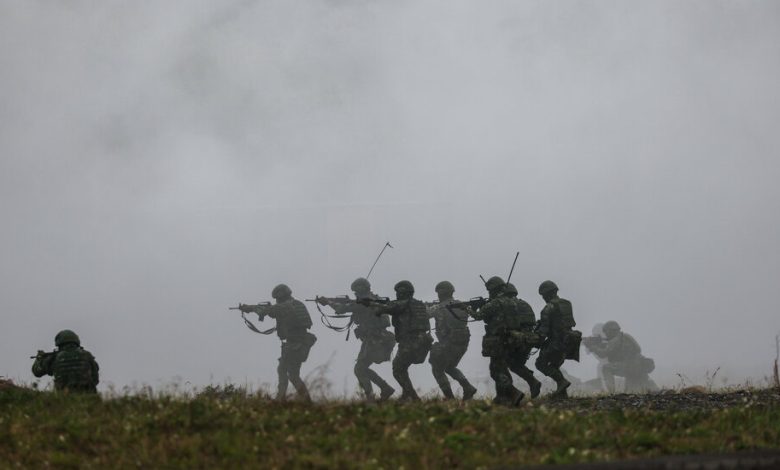What It Means to Choose Between Ukraine and Taiwan

Over the weekend Senator J.D. Vance of Ohio went to the Munich Security Conference to play an unpopular part — a spokesman, at a gathering of the Western foreign policy establishment, for the populist critique of American support for Ukraine’s war effort.
If you were to pluck a key phrase from his comments, it would be “world of scarcity,” which Vance used five times to describe the American strategic situation: stretched by our global commitments, unable to support Ukraine while simultaneously maintaining our position in the Middle East and preparing for a war in East Asia, and therefore forced to husband our resources and expect our allies in Europe to counter Russia’s armaments and ambitions.
In my Sunday column I wrote about the tensions in the hawkish case for U.S. spending on Ukraine, the tendency for the argument to veer from boosterism (“We’ve got Putin on the ropes!”) to doomsaying (“Putin’s getting stronger every day!”) while describing the same strategic landscape.
The case Vance pressed in Munich is more consistent, and its premises — not isolationist but Asia-first, more concerned about the Taiwan Strait than the Donbas — have supplied the common ground for Republican critics of our Ukraine policy since early in the war. But consistency is not the same as correctness, and it’s worth looking for a moment at why this kind of argument makes Ukraine hawks so frustrated.
In part, there’s a suspicion that some of the people making an Asia-first case don’t fully believe it, that it’s just a more respectable way of sloughing off American obligations, and that if the conservative base or Donald Trump decided it wasn’t worth fighting for Taiwan, many China-hawk Republicans would come up with some excuse to justify inaction.
But assuming good faith — and whatever the calculations of Republican politicians, many China hawks are entirely on the level — there’s also the problem that this argument privileges hypothetical aggression over real aggression, a potential war over a current one, “contingencies in East Asia” (to quote Vance, again) over an actuality in Eastern Europe. We can’t do everything to stop Vladimir Putin today because of something Beijing might conceivably do tomorrow is the fundamental claim, and you can see why people chafe at it.




